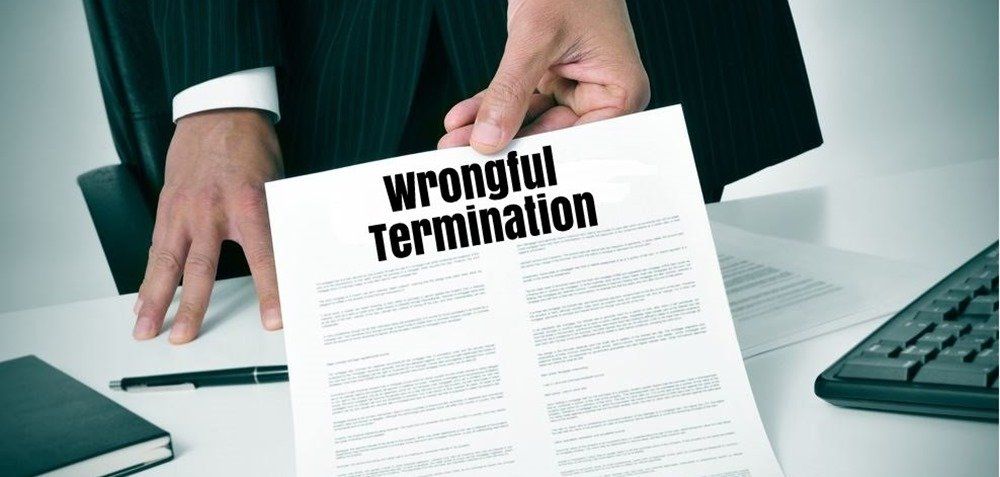Are you facing the unfortunate situation of being wrongfully terminated from your job in California? If so, it’s crucial to understand the legal framework surrounding this issue, particularly the statute of limitations.
The statute of limitations for wrongful termination in California determines the timeframe within which you can file a claim against your former employer. This means that you only have a limited period to take legal action and seek compensation for the unlawful termination.
If you suspect that you have been wrongfully terminated, it’s essential to take immediate steps to protect your rights. Here are the things to keep in mind:

Understanding Wrongful Termination Laws in California
Understanding wrongful termination laws in California is crucial for employees who believe they’ve been wrongfully fired.
The statute of limitations for filing a wrongful termination claim in California is generally two years from the date of termination. However, there are certain exceptions that can extend this time frame.
For example, if you’re claiming a violation of public policy, which includes being fired for reporting illegal activities or refusing to engage in unlawful conduct, the statute of limitations is extended to three years.
It’s important to note that the clock starts ticking on the statute of limitations from the date of termination, so it’s essential to act promptly if you believe you’ve been wrongfully terminated. Waiting too long could result in your claim being dismissed, and you losing your opportunity to seek justice.
It’s always wise to consult with an experienced employment attorney as soon as possible to discuss your case and ensure you meet all necessary deadlines.
Identifying Unlawful Reasons for Termination
In California, there are specific laws that protect employees from being terminated for unlawful reasons. It is important to know what these unlawful reasons are so that you can determine if your termination falls into one of these categories.
One unlawful reason for termination is discrimination based on characteristics such as race, gender, age, religion, or disability. If you believe that you were fired because of any of these factors, you may have a valid claim for wrongful termination.
Retaliation is another unlawful reason for termination. If you were fired in retaliation for exercising your rights, such as reporting illegal activities or filing a complaint against your employer, you may have a strong case for wrongful termination.
Another unlawful reason for termination is breach of contract. If you had a valid employment contract that was violated by your employer, you may have grounds for a wrongful termination claim.
Firing an employee for taking legally protected leave, such as medical or family leave, is also considered unlawful.
All of these things we mentioned are unlawful reasons for termination. It’s important to consult with an attorney who specializes in employment law to discuss the specifics of your situation and determine the best course of action.
The Time Limit for Filing a Wrongful Termination Claim
As mentioned, in California, there’s a statute of limitations that determines how long you have to file your wrongful termination claim. Generally, you’ve got two years from the date of your termination to file a claim with the appropriate agency or court. However, there are a few exceptions that can extend or shorten this time limit.
If your claim is based on a violation of a state anti-discrimination law, such as race, gender, or disability discrimination, you must file within one year of the date of your termination. On the other hand, if your claim is based on a violation of a federal anti-discrimination law, such as Title VII of the Civil Rights Act, you’ve got 300 days from the date of termination to file your claim.
If you were not aware of the wrongful nature of your termination at the time it occurred, the statute of limitations may be extended. In this situation, the clock starts ticking from the date you discovered, or should’ve reasonably discovered, the wrongful termination.
It’s important to note that these time limits are strict and failing to file within the specified period may result in your claim being dismissed. Remember, time is of the essence when it comes to filing a wrongful termination claim, so don’t delay in taking action if you believe you’ve been unlawfully terminated.
Steps to Take if You Suspect Wrongful Termination
If you suspect you’ve been unfairly let go from your job, take proactive steps to protect your rights and seek justice. Wrongful termination can have serious consequences, both financially and emotionally. Here are some important steps to take if you find yourself in this situation.
First, gather any evidence that supports your claim of wrongful termination. This can include emails, performance evaluations, witness statements, or any other documentation that may be relevant. It’s important to have as much evidence as possible to strengthen your case.

Next, consult with an employment attorney who specializes in wrongful termination cases. They can evaluate your situation and provide guidance on the best course of action. They will also be able to inform you of the specific statute of limitations in California for filing a wrongful termination claim, as it can vary depending on the circumstances.
If you decide to move forward with a claim, file a complaint with the appropriate government agency, such as the California Department of Fair Employment and Housing or the Equal Employment Opportunity Commission. These agencies can investigate your case and potentially mediate a resolution.
You can also consider reaching out to any relevant labor unions or employee advocacy groups that may be able to provide support and resources during this process.
Conclusion
If you believe you’ve been wrongfully terminated in California, it’s important to understand the statute of limitations for filing a claim. You have a limited amount of time to take legal action, so it’s crucial to act promptly. The minute you realize that you can’t navigate on these laws alone, you should start looking for a qualified lawyer to assist you in this difficult situation.


